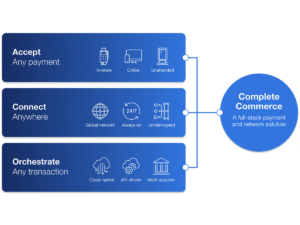A new scam is on the rise that focuses on building a relationship with the intended victim in hopes of convincing them that they are investing money into cryptocurrency. However, the victim is unknowingly sending their money directly to the scammer!
Often referred to as ‘wrong number scams’ or ‘pig butchering scams’ it is easy to fall victim to a scammer if they have built a relationship with you as all it takes is a response to the first message.
The targeted victim will receive a text message via SMS, WhatsApp, or other messaging platforms from an unknown number. The contents of the text could be as simple as “Hi” or a more detailed message such as “Hi, I’m reaching out to make sure my hair appointment is confirmed for tomorrow at 3pm”. The goal of the message is to be vague enough so that the receiver will believe the sender has the wrong number and will answer them. Once the text is answered, the sender will attempt to keep a conversation going. This is where the scam begins…
The fraudster will attempt to build a relationship through these conversations, with the goal of allowing the targeted victim to become comfortable with talking about investment. Some will talk on the phone, while others will avoid talking on the phone, depending on who they are pretending to be. For example, the scammer may pretend to be an old friend and they will try to get the victim to open up about something in their life that is causing stress, such as student loan debt, before bringing up investments. Other times the fraudster will go so far as to build a romantic relationship with the victim, and others will keep things strictly business. The goal is to eventually turn the conversations to investing, whether it takes days or weeks.
Once they have opened the floor to money talk, they will ‘teach’ the victim about cryptocurrency and how it can benefit them. The sender will often use illegitimate cryptocurrency apps to scam their victims. Usually, they will have the victim send a small amount of money to grow to show them it is real. Once they are comfortable investing lesser amounts, they will invest larger and larger amounts, without the knowledge that they are sending the funds directly to their scammer. Although it is widely known that you should not engage with unknown numbers, fraudsters can be very convincing and the people they do fool can lose substantial amounts of money.
It is best practice to never engage with unknown numbers and report phone numbers being used by scammers to your carrier. If you believe you are the victim of a scam, you can report it to your local police, state Attorney General’s office and the FTC.
Call-blocking apps, including those powered by TNS Call Guardian®, are also a great resource for reporting and blocking unwanted robocalls. Stay vigilant and share information about scams with others.
John Haraburda is Director of Product Management at TNS with specific responsibility for TNS’ Communications Market solutions.
Call Guardian is a registered trademark of Transaction Network Services, Inc.






